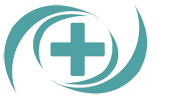|
The treatment of migraines in rehabilitation centers involves a comprehensive approach that includes medical management, lifestyle modifications, and various therapeutic interventions. Rehabilitation centers offer a unique setting where patients can receive a multidisciplinary approach to migraine management, often leading to improved outcomes.
Understanding Migraines
- Definition and Symptoms: Migraines are a type of headache characterized by intense, throbbing pain, often accompanied by nausea, vomiting, and sensitivity to light and sound.
- Causes and Triggers: While the exact cause of migraines is not fully understood, they are believed to result from abnormal brain activity affecting nerve signals, chemicals, and blood vessels in the brain. Common triggers include stress, hormonal changes, certain foods, weather changes, and lack of sleep.
The Role of Rehabilitation Centers in Migraine Treatment
- Multidisciplinary Approach: Rehabilitation centers typically offer a team of healthcare professionals, including neurologists, physical therapists, psychologists, and nutritionists, who work together to provide comprehensive care.
- Personalized Treatment Plans: Treatment is tailored to the individual's specific needs, considering the frequency and severity of their migraines, triggers, and overall health.
Medical Management
Pain-Relieving Medications
Pain Relievers
- Over-the-Counter Options: These include ibuprofen, aspirin, and acetaminophen, effective for mild to moderate migraine relief when taken at the onset of symptoms.
Triptans
- Function and Use: Triptans are prescription drugs that specifically target migraine pain. They work by constricting blood vessels and blocking pain pathways in the brain, effectively alleviating migraine symptoms.
- Examples: This category includes several medications, such as sumatriptan, rizatriptan (Maxalt), and others.
- Maxalt (Rizatriptan): Maxalt is particularly noted for its effectiveness in relieving migraine pain and symptoms. It is taken orally and is known for its rapid onset of action.
- Considerations: While Triptans are generally effective, they are not suitable for individuals with certain heart or vascular conditions due to their vasoconstrictive properties.
Opioid Medications
- Usage: Reserved for those who cannot use triptans or NSAIDs, but they carry a risk of dependency.
Anti-nausea Drugs
- Indication: These are commonly used alongside migraine medications to manage nausea and vomiting that often accompany severe migraines.
- Regular Monitoring: Patients' response to medications is closely monitored, and adjustments are made as needed.
Lifestyle Modifications
- Trigger Identification and Avoidance: Patients are educated about potential migraine triggers and strategies to avoid them.
- Stress Management: Techniques like mindfulness, yoga, and meditation can be effective in managing stress, a common migraine trigger.
- Dietary Changes: Nutritionists may recommend changes in diet, such as avoiding foods that trigger migraines.
Therapeutic Interventions
- Physical Therapy: Includes exercises to improve posture and reduce muscle tension that can contribute to migraines.
- Biofeedback and Relaxation Techniques: These methods help patients control physiological functions to reduce migraine frequency and intensity.
- Cognitive Behavioral Therapy (CBT): Helps in managing the psychological aspects of chronic pain and improving coping strategies.
Emerging Treatments and Research
- Neuromodulation Techniques: Techniques like transcranial magnetic stimulation (TMS) and nerve stimulation show promise in migraine treatment.
- Research on New Medications: Ongoing research is looking into new pharmacological treatments for migraines.
Patient Support
- Educational Workshops: These can help patients understand their condition better and learn how to manage it effectively.
- Support Groups: Interacting with others facing similar challenges can provide emotional support and practical tips.
The comprehensive care offered by rehabilitation centers can be highly effective in managing migraines. This approach not only addresses the immediate pain but also works on identifying and managing triggers, thus providing a holistic solution to migraine sufferers. By combining medical, physical, and psychological strategies, rehabilitation centers play a crucial role in providing relief and improving the quality of life for individuals suffering from migraines.
|

